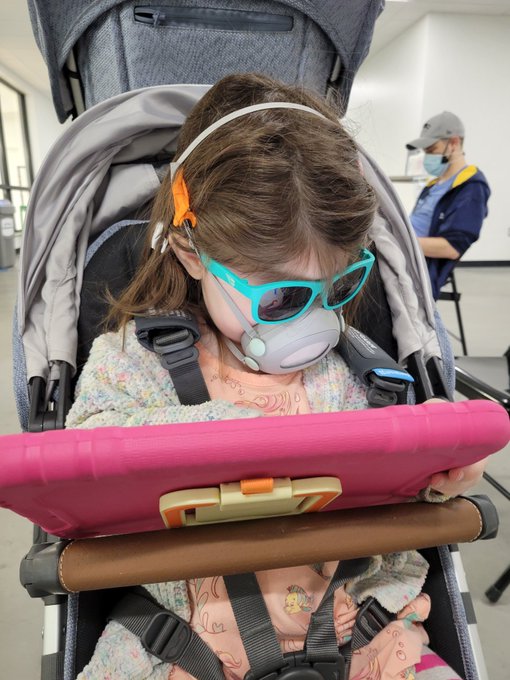Generation Z Will End iPad Kids Once and For All
“Do you have any games on your phone?” We have all heard that question before. There they are, that tiny goblin with grabby hands reaching out to you. They have pleading eyes, and for a moment you almost give in, nearly handing over your valuable possession to the youngling. That is of course until you come to your senses. You say no … and the tantrum begins. Screaming. Crying. It is in moments like these where you ask yourself, “How did we as a society end up like this?”
Children like this are what my generation likes to call “iPad kids.” Such a term is culturally understood as anyone who was raised with such a high attachment to technology that it stunts their perception of the outside world and hinders their ability to communicate well with others.
Children become this way because parents do not know how to raise their children correctly when it comes to technology. How could they? It is not entirely their fault. They do not have the life experience or wisdom it takes to coach their children through any kind of struggle in that realm of life because they did not experience a childhood full of technology. However, because of this, the first generations growing up with technology are taking a lot of the first blows when it comes to online addiction and corruption.
Generation Z was completely thrown into the deep end of technology entirely unaware of its consequences. We had no one to guide us. We had no one to tell us what could go wrong. Parents gave us iPads and iPhones at an incredibly early age. Before many of us even reached middle school, we had full access to the internet. Why would there be restrictions? Parents never even knew we needed them.
We were the guinea pigs for a drug no one realized could be addictive. Now it is too late. My generation is stuck in a deep-rooted attachment to the internet. We are addicts, and our rehab centers have only recently been constructed. Our children and their children after them will succumb to the same fate unless we do something about it now.
Generation Z is undeniably the most tech-savvy generation alive. That being said, such a lifestyle will definitely have an impact on our future parenting styles. Since we are aware of the possible damages and the nuances of the internet, we have what it takes to protect future generations from falling into the same trap we fell into.
How exactly will we do this? Well, the key word here is moderation. Protecting our children does not have to mean depriving them of technology altogether. It simply means putting smart restrictions on their access to certain websites, as well as limiting their time spent on devices. Restrictions can be placed on a child’s phone through different parental control apps that prohibit their ability to run into explicit content online. Many millennial parents today have begun to provide their five-year olds with smartwatches, an unprecedented consumerbase for the gadget. With smartphones, parents can track their children while simultaneously introducing them to the world of technology slowly and without full access to the internet at the get-go.
Such action will only work on younger kids. When a child gets older, they most certainly have the intelligence to work around any and all restrictions placed on them by their parents. That is where parent-child bonding and empathy comes into play. Honest and real conversations about the effects of technology addiction have to be had once children get to an age where they are more independent. Within these conversations, teenagers also need to be taught that their worth is not defined by the amount of likes they receive on an Instagram post. They need to be made aware of the dangers of ill-intentioned people who prey on the naivety of teenagers. As a generation of people who have been preyed on online, we know the warning signs of exploitative and dangerous people and can pass this information onto our children. Lastly, our children need to be aware of the importance of physically spending time with friends. We can understand what it is like to be tempted to communicate digitally most of the day. In many cases, this technological fluency is a generational superpower that can be used for good. However, if overused, people neglect their basic human need for physical contact and develop social anxiety due to lack of face-to-face conversation. The next generation of parents must be especially encouraging of their children developing public social skills.
I believe that this next generation of parents can provide their children with knowledge and skills that previous generations could not. If done correctly, we can cure the ill-effects of technology and instill a foundational, healthy relationship with it for generations to come. By tackling the problem at its root, “iPad kids” will no longer exist.
Abigail Martin, FCRH ’26, is a journalism major from Dallas, Texas.














































































































































































































Raygirl • Apr 1, 2024 at 3:36 pm
It will be interesting to see how Gen Z handles raising children in the first place. if they are living in better economic times where they are not overworked, they might be able to give kids the balance we can’t as Millennials.